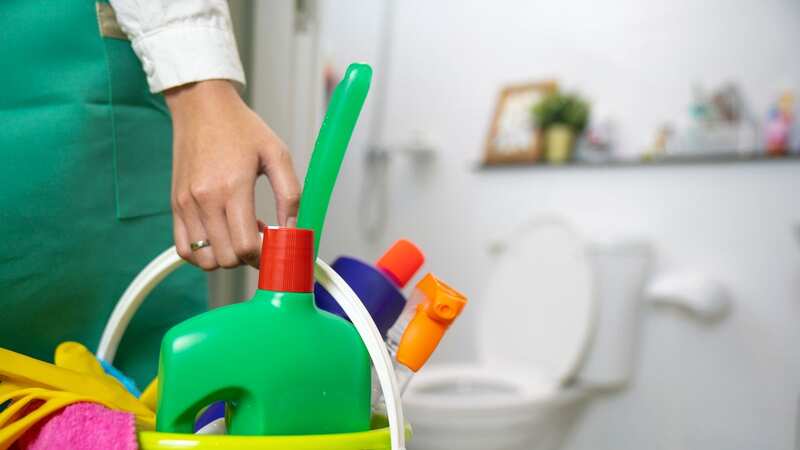'Manic cleaning' trend takes over TikTok but experts say there are hidden risks

A new trend called 'manic cleaning' has taken over TikTok, but experts are warning that it could be harmful. Cleaning hacks have become very popular as everyone tries to reduce the time they spend tidying their homes, but some of these 'hacks' might be causing more harm than good.
Some TikTok videos have labelled people who suddenly get a burst of energy and motivation to clean their entire house as "manic cleaners". This term is used for those who spend hours decluttering, scrubbing dishes until they're spotless, or vacuuming and mopping their floors until they shine.
However, labelling this behaviour as 'mania', a medical condition, isn't always accurate and can be insensitive. Hanno Ortiz, 25 from Kansas, said: "It is absolutely insensitive and invalidating to see mental health language being used as a cute little adjective or referring to something completely normal."
"Unfortunately, serious symptoms of mental illness have become trendy and have lost their meaning. So people who suffer from mania are being spoken over by people who act on pretty normal impulsive behavior. 'Manic cleaning' videos, she added, contribute to misinformation about mania as people associate it with ordinary behaviors and ignore other, more debilitating symptoms."
TikTok videos on manic cleaning have gained over a million views, which is concerning. The Cleveland Clinic categorises mania under bipolar disorder, describing it as an extremely unstable euphoric or irritable mood along with an excess activity or energy level, excessively rapid thought and speech, reckless behaviour, and feeling of invincibility.
 Cleaning guru shares why you shouldn't make your bed first thing in the morning
Cleaning guru shares why you shouldn't make your bed first thing in the morning
Read more: 'I took DNA test for a laugh - and accidentally uncovered my mum's devious past'
For all the latest news, politics, sports, and showbiz from the USA, go to The Mirror US
After these periods of high energy comes severely low mood, otherwise termed as "depressive episodes", for weeks or several months after, which some have noted after frantically cleaning their home., according to The National Institute of Mental Health. While some deem manic cleaning under the same umbrella as mania, it is not healthy, nor correct, to throw the term around so loosely.
The difference between just cleaning a lot and manic cleaning is that manic cleaning is not normal for the person, it's very noticeable, happens often, can mess up their life and make them feel sad. Just because you're tired after a big clean doesn't mean it's mania.
Mania also comes with other signs, not just wanting to clean lots. It might make someone talk more or feel really down later. Psychiatry professor David Miklowitz said to USA Today: "There's the assumption that being in a high state of frenetic activity means you're bipolar. But people don't realize the other part of the disorder, which is when you fall into severe depression. We're not talking about just getting tired of cleaning. We're talking about having trouble getting out of bed, not being able to sleep even though you want to, losing appetite or feeling suicidal."
"True episodes of mania are very painful and disruptive. It's not fun, and people can end up arrested or in the hospital. I know that people online are just joking around, but taking a label like mania and applying it to an everyday behavior can diminish what it's like to really have bipolar disorder."
Labelling your cleaning habits as 'manic cleaning' is not accurate and should not be considered a medical condition, as some social media users are suggesting. If you're worried about yourself or someone else, it's best to talk to a healthcare professional.
Read more similar news:
Comments:
comments powered by Disqus






























